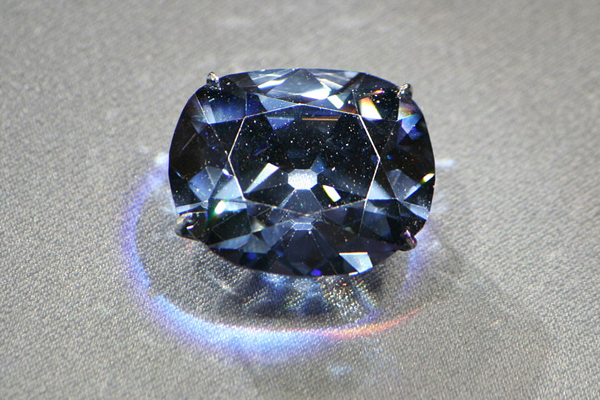What Happens When You Swallow a Diamond?

A Chinese tourist was arrested Wednesday (Sept. 5) after an X-ray revealed he had stolen and swallowed a diamond worth $13,600 at a gem exhibition in Sri Lanka.
In a botched sleight-of-hand, Chow Cheng, 32, ingested a 1.5-carat diamond he was inspecting at an exhibition stall and tried to replace it with a synthetic one, but the owner of the stall saw him do it. After an X-ray exposed the pricey gem lodged in Chow's throat, the man was taken to a hospital and given laxatives, according to news reports.
Judging by the number of similar incidents from this year alone, covertly swallowing jewels and replacing them with replicas seems a common criminal tactic. It happened in May in Ontario, Canada, when a 52-year-old man swallowed a $20,000 diamond at a jewelry store. Forensic investigators retrieved the rock by monitoring the thief's bowel movements in a "special police cell" without a flushing toilet, according to CBC News.
Then, in July in Salt Lake City, Utah, a woman was accused of swapping a $4,000 diamond ring for a fake one at a department store, swallowing the ring and then pawning it days later for $600. Local police Sgt. Jon Arnold said the ring went through the "natural digestive process" before seeing the light of day, the Associated Press reported. [How Are Diamonds Made?]
The popularity of diamond-eating suggests internal organs are an optimal hiding place for stolen hardware. But what happens to your innards when you swallow a diamond? As one of the hardest materials on Earth, there's little risk of diamonds decomposing inside your body, but can they hurt you in some other way?
Scant research appears to have been done on the effects of crystalline carbon on internal organs, specifically, but studies have found that most "foreign bodies"— non-food items that people swallow, from coins to rocks to pencils — work their way through the body without a hitch.
"Fortunately, 80% to 90% of ingested foreign bodies will pass without intervention," gastroenterologists at the Walter Reed Army Medical Center wrote in a 2007 paper published in the Journal of Gastrointestinal Endoscopy Clinics of North America. "Objects with sharp edges or pointed tips have the highest risk of complications, up to 35%."
Sign up for the Live Science daily newsletter now
Get the world’s most fascinating discoveries delivered straight to your inbox.
In other words, 65 percent of the time, pointy diamonds will not hurt you.
But sometimes diamond swallowers find themselves among the unlucky minority. Back in 2010, a Sri Lankan man swallowed several condoms containing more than 2,000 diamonds worth $670,000 altogether, and attempted to smuggle the riches through an Indian airport.
According to NBC, local police commissioner SR Jangid said of the smuggler, "During questioning, he could not sit comfortably and when questioned, he told the police that he was suffering from piles." Piles are inflamed hemorrhoids caused by abnormal pressure in the anal canal that can result in rectal bleeding. Two words: blood diamonds.
Follow Natalie Wolchover on Twitter @nattyover or Life's Little Mysteries @llmysteries. We're also on Facebook & Google+.
Natalie Wolchover was a staff writer for Live Science from 2010 to 2012 and is currently a senior physics writer and editor for Quanta Magazine. She holds a bachelor's degree in physics from Tufts University and has studied physics at the University of California, Berkeley. Along with the staff of Quanta, Wolchover won the 2022 Pulitzer Prize for explanatory writing for her work on the building of the James Webb Space Telescope. Her work has also appeared in the The Best American Science and Nature Writing and The Best Writing on Mathematics, Nature, The New Yorker and Popular Science. She was the 2016 winner of the Evert Clark/Seth Payne Award, an annual prize for young science journalists, as well as the winner of the 2017 Science Communication Award for the American Institute of Physics.










